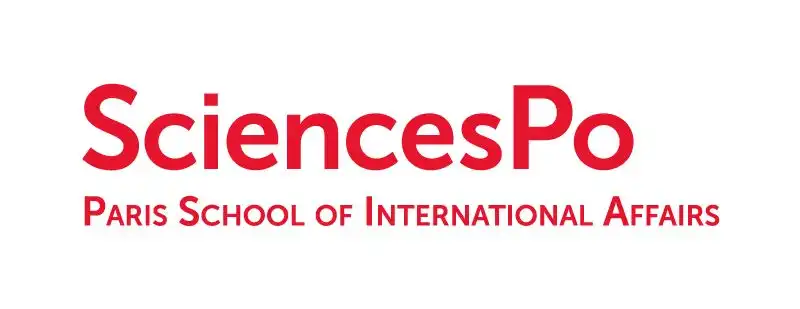Home>Collaboration in action: lookback on the Hub's Paris Peace Forum & Road to AI Summit joint side-event
10.12.2024
Collaboration in action: lookback on the Hub's Paris Peace Forum & Road to AI Summit joint side-event
On November 12, 2024, the PSIA Tech & Global Affairs Innovation Hub hosted an entire day of events at the intersection of AI, digital governance, and international cooperation. In collaboration with the Paris Peace Forum, this vibrant gathering labelled “on the Road to the 2025 AI Action Summit” brought together over 200 attendees, including Sciences Po students, Paris Peace Forum participants, and external guests, who engaged with a lineup of 25 expert speakers across five thought-provoking sessions.
The largest event organized during its launching year, this day captures the Hub’s commitment to gather policymakers, tech leaders, civil society organizers, academia, and PSIA students to foster a constructive multistakeholder dialogue, explore actionable, innovative solutions for global challenges, and train the next generation of tech governance leaders.
Digital Infrastructure to Advance Data Agency in the Age of Artificial Intelligence
Kicking off the day, the Project Liberty Institute and Global Solutions Initiative convened a closed-door roundtable of 30 distinguished experts. This multistakeholder consultation explored strategies for reshaping the global data economy by leveraging government leadership to chart the path towards decentralized organizations and collectives protecting data privacy and rights in an economy transformed by AI. Insights from this session will inform future consultations, including a follow-up in Washington D.C., solidifying its impact on the global AI governance landscape.
Cooperative AI Governance: Building Responsible AI Across Sectors
In partnership with All Tech Is Human, this panel discussion explored cross-sector collaboration as a basis for responsible AI development. Featuring insights from leading figures such as Florian Cafiero (PSL - Ecole Nationale des Chartes), Tom David (Institut Montaigne), Caroline Lancelot Miltgen (Audencia), and Nicolas Miailhe (PRISM eval), the session highlighted the need for bridging gaps between industry, academia, and civil society to tackle AI’s ethical challenges. The conversation between the speakers and the audience brought up actionable steps to break open AI governance and identified ways for students and other non-AI professionals to get involved.
Information & Democracy Forum: Public Interest AI Certification
Introducing its groundbreaking voluntary certification mechanism for public interest AI, Camille Grenier and Katharina Zuegel from the Forum on Information and Democracy engaged with Amanda Craig (Senior Director Responsible for AI Policy at Microsoft) and environmental responsibility and traceability professional Julie Marsaud (Forest Stewardship Council) to test this innovative governance tool and draw inspiration from environmental certification. After guiding participants through the certification’s design and assessment process, this collaborative session allowed students and other audience members to contribute their ideas to the improvement of the certification scheme and its implementation.
Empowering Youth: Innovative Solutions to Combat Disinformation in Democracies
One of the highlights of the day, this panel built around an open consultation carried out earlier this year by Make.org and the SciencesPo Tech & Global Affairs Innovation Hub, with support from NATO and Microsoft, brought together international organization speakers (Sabrina Spieleder, Head of the Information Environment Assessment Team in the Public Diplomacy Division of NATO), industry experts (Ben Crampton, Director of European Government Affairs at Microsoft), govtech champions (Axel Dauchez, CEO of Make.org), civil society organizations (Dr. Dominik Hierlemann, Senior Advisor on Democracy and Social Cohesion, at the Germann Bertelsmann Stiftung), SciencesPo researchers (Florent Parmentier, general secretary of CEVIPOF), the Hub's advisors as well as young Europeans from Germany and France who took part in the consultation. Together, they officially presented and discussed the key findings of the consultation, fostering the dialogue between EU youth, researchers, and high-level policymakers on how disinformation affects democratic processes, the positive and negative impacts AI may bring on information integrity, and the innovative solutions to strengthen public trust and civic participation.
AI Coffee with the French Digital Council
The interactive and creative formats led by the French Digital Council to facilitate open participation was a perfect conclusion for this intense day. Joséphine Corcoral and Louis Magnes hosted the “Café IA” workshop, inviting participants to join an open discussion about their own use of AI systems and their impacts, both at an individual and societal level. The diverse crowd of participants took on the challenge to write short stories narrating how IA systems may transform our lives and social structures, reusing the “Mikrodystopies” format experimented by French writer François Houste.
This successful day of collaboration would not have been possible without the unwavering support of our partners, including the Paris Peace Forum, Project Liberty Institute, Global Solutions Initiative, All Tech Is Human, Forum on Information and Democracy, Make.org, NATO, and Microsoft. Special thanks go to the exceptional students of Sciences Po who contributed their time and creativity to the event’s seamless execution. Finally, we extend our heartfelt gratitude to all speakers and participants who made this day an inspiring milestone in advancing AI governance and digital cooperation.
Find out more about PSIA's Technology and Global Affairs Innovation Hub
Find out more about PSIA's program on Technology and Global Affairs:
